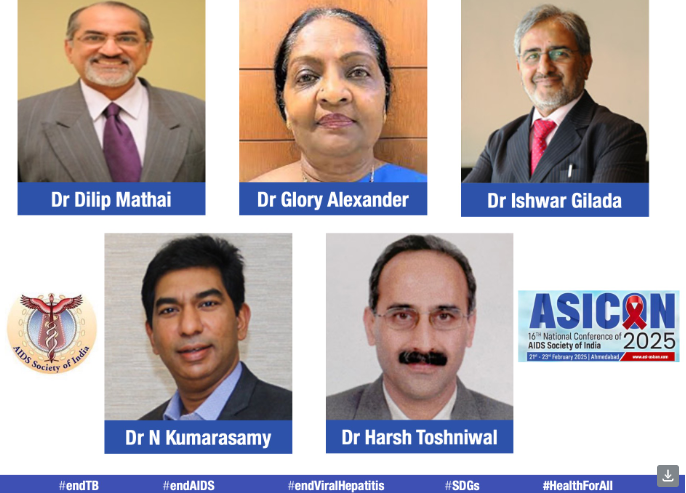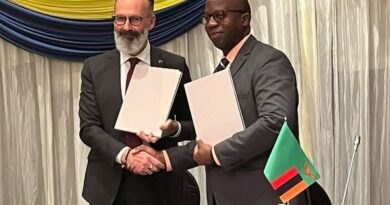Urgent and Equitable HIV Services Key to Ending AIDS by 2030, Say Experts at ASICON 2025
As the clock ticks toward the 2030 global deadline to end AIDS, leading medical experts at the 16th National Conference of the AIDS Society of India (ASICON 2025) have issued a resounding call for urgent, rights-based, and equitable HIV service delivery. Despite decades of scientific progress, over 1.3 million people were newly infected with HIV and 630,000 died of AIDS-related illnesses globally in 2023—figures that experts say are preventable.
In India alone, around 200 new HIV cases were diagnosed daily in 2023, with nearly 100 AIDS-related deaths per day. “If HIV is a chronic manageable condition, why are 169,000 people living with HIV lost to follow-up?” asked Dr. Dilip Mathai, President of the AIDS Society of India. Dr. Mathai stressed the urgent need for training primary healthcare workers in HIV care to strengthen front-line response.
Dr. Ishwar Gilada, President Emeritus of the Society and the first doctor to start HIV care in India, echoed this sentiment: “We have the tools now to prevent every HIV infection and death. When people with HIV are virally suppressed, there’s zero transmission risk.”
India’s progress toward the UNAIDS 95-95-95 targets for 2025 shows promise but gaps remain. As of March 2024, 81% of people with HIV in India knew their status, 88% of them were on antiretroviral therapy, and 97% of those were virally suppressed. Yet, some regions such as Puducherry and Assam lag significantly behind in treatment initiation rates.
Experts highlighted the need to scale up combination prevention strategies, including PrEP (Pre-Exposure Prophylaxis), self-testing, and regular treatment monitoring. “PrEP must be rolled out in public health programmes without delay,” urged Dr. Gilada.
Dr. Glory Alexander of ASHA Foundation emphasized a gender-sensitive response, noting women living with HIV face a significantly higher risk of cardiovascular disease and cervical cancer. She advocated for the inclusion of HPV vaccines like Cervavac in national programmes to protect women against cervical cancer.
The conference also spotlighted the growing threat of drug resistance. “Even newer antiretroviral medicines are facing resistance,” warned Dr. Kumarasamy, Director of VHS Infectious Diseases Medical Centre.
Despite challenges, India has made major strides. HIV incidence has declined by 44% since 2010, outpacing global progress, and AIDS-related deaths dropped by 79%. States like Gujarat, hosting ASICON 2025, have shown a 57% drop in new infections.
Yet, infection rates remain alarmingly high among key populations such as people who inject drugs, sex workers, and men who have sex with men—underscoring the need for targeted, inclusive, and sustained interventions.
Scientific partners of ASICON 2025 include the National AIDS Control Organisation, National TB Elimination Programme, UNAIDS, and others, marking a united front to end AIDS by 2030.



